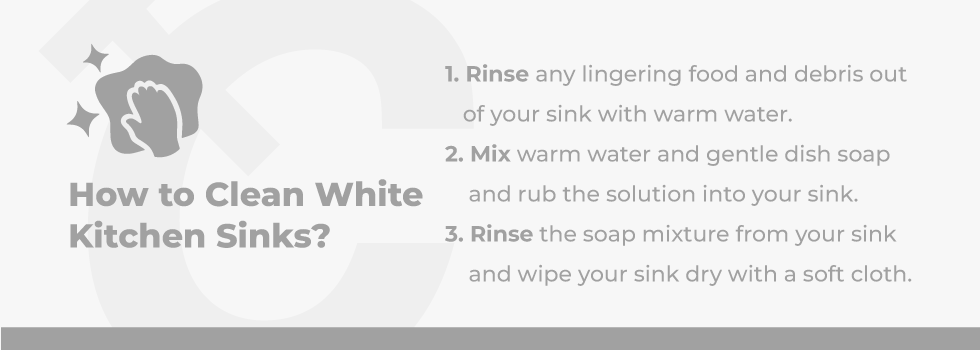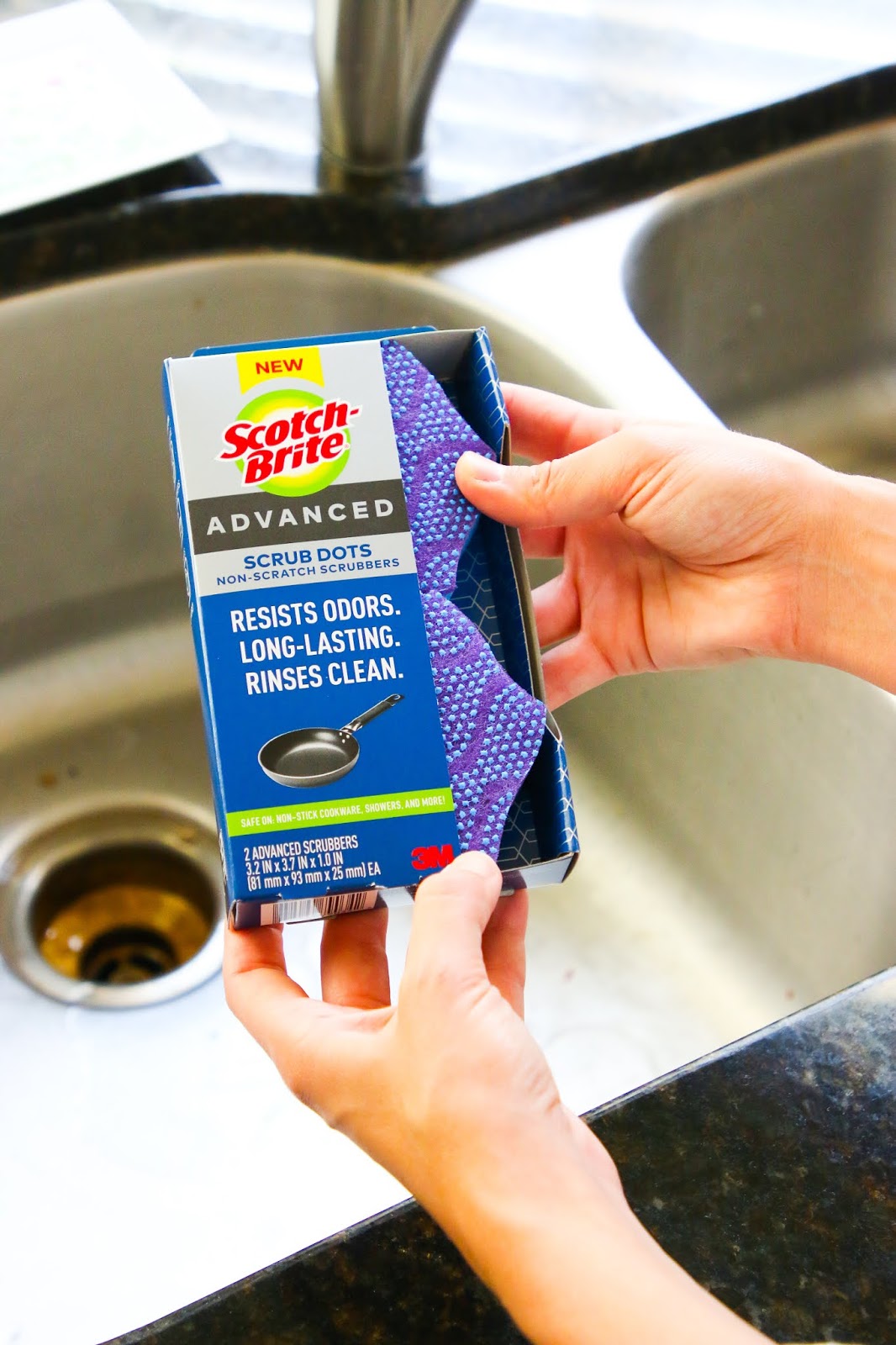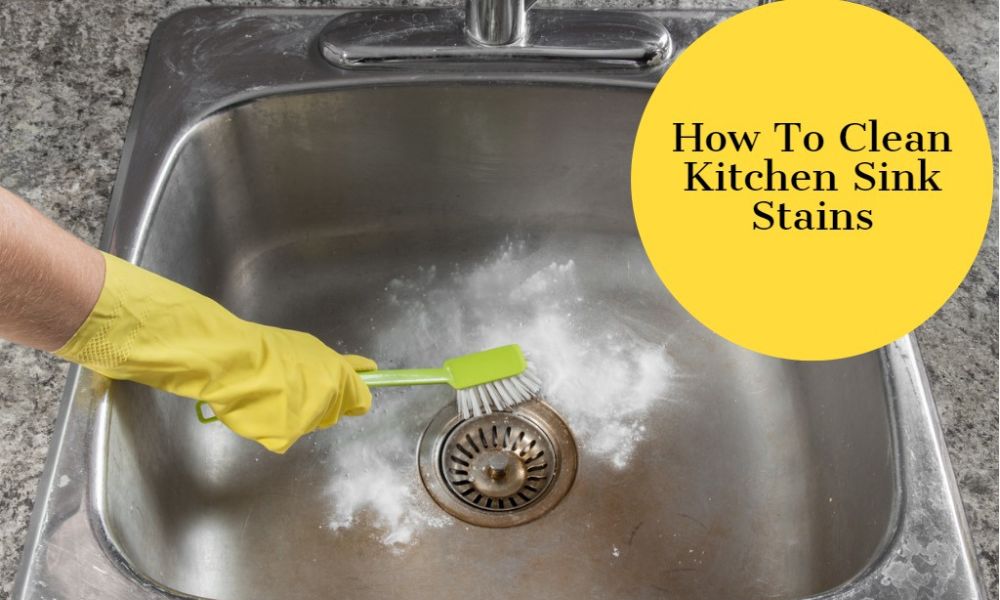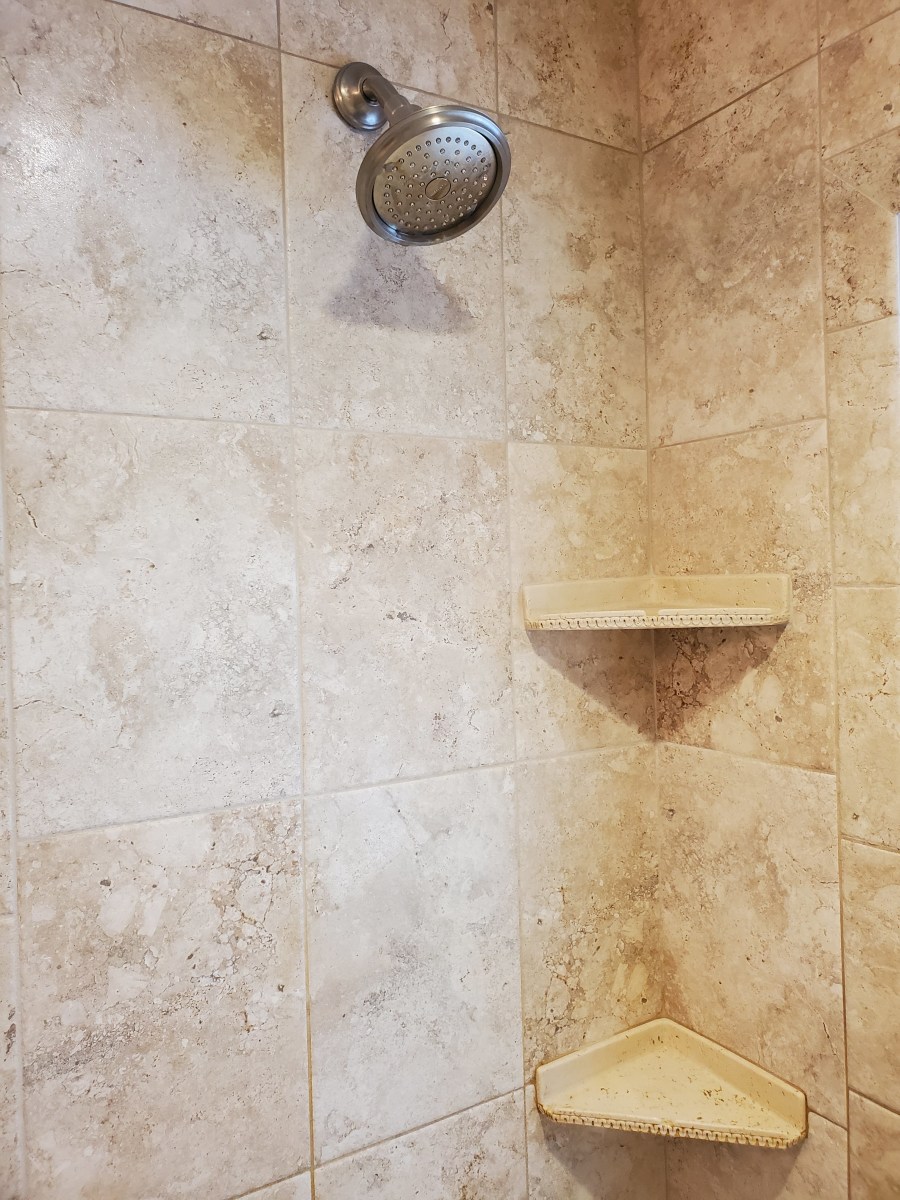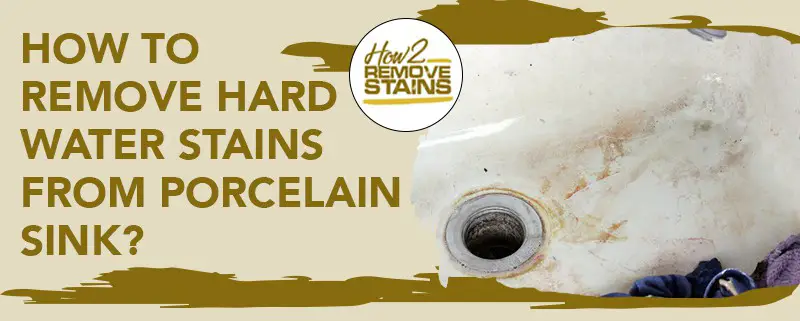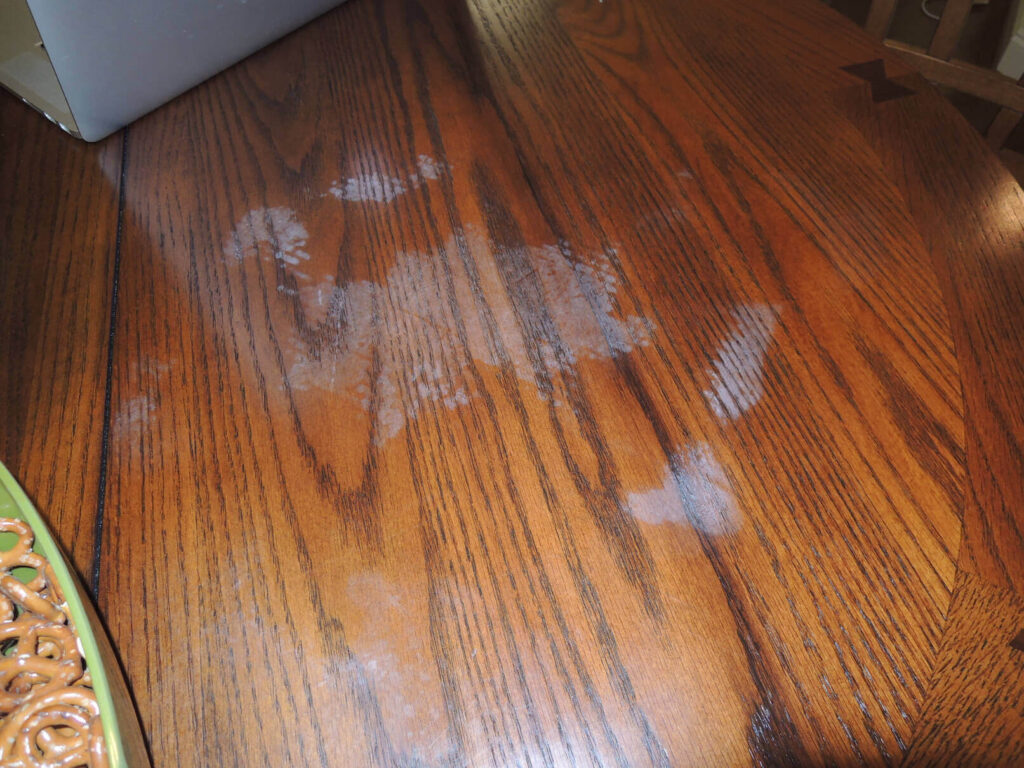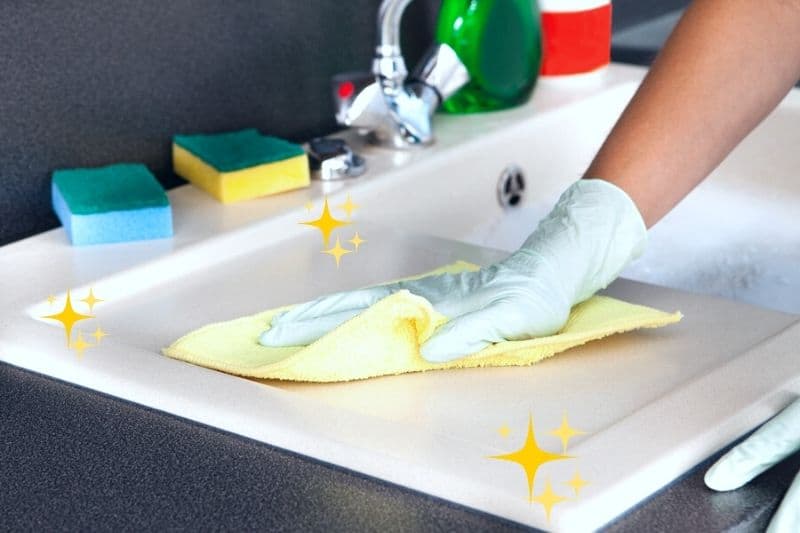Having a white kitchen sink can add a touch of elegance and cleanliness to your kitchen. However, maintaining its pristine appearance can be a challenge, especially when it comes to stubborn stains. Whether it's from coffee, rust, or hard water, these stains can make your sink look dirty and dull. But fear not, as there are various ways to effectively remove stains from a white kitchen sink. If you're dealing with light stains, start by creating a paste using baking soda and water. Apply the paste to the stain and let it sit for about 15 minutes. Then, scrub the area with a soft sponge or brush and rinse with warm water. For tougher stains, you can use a mixture of vinegar and water. Let it sit for a few minutes before scrubbing and rinsing. For rust stains, try using a mixture of lemon juice and salt. Let it sit for an hour before scrubbing and rinsing. These natural solutions can be effective in removing stains without damaging your sink's surface.1. How to Remove Stains from a White Kitchen Sink
If you prefer using commercial products, there are plenty of options available in the market to help you remove stains from your white kitchen sink. Look for products that are specifically designed for removing stains and are safe to use on white surfaces. Some popular options include Mr. Clean Magic Eraser, Bar Keepers Friend, and CLR Stain Magnet. These products are designed to target tough stains and can be effective in restoring the sparkle of your sink.2. Best Products for Removing Stains from White Kitchen Sinks
If you're looking for budget-friendly options, you can create your own cleaning solutions using common household items. For example, you can make a paste using cream of tartar and hydrogen peroxide to remove rust stains. Another DIY solution is using a mixture of lemon juice and baking soda to tackle tough stains. These solutions are not only effective but also eco-friendly.3. DIY Solutions for White Kitchen Sink Stains
Before you can effectively remove stains from your white kitchen sink, it's important to understand what causes them in the first place. Some common culprits include coffee, tea, red wine, and fruit juices. These liquids can leave behind stubborn stains if not cleaned immediately. Other causes of stains can be hard water, rust, and soap scum build-up. By identifying the cause of the stain, you can choose the most appropriate method to remove it.4. Common Causes of Stains on White Kitchen Sinks
The best way to deal with stains is to prevent them from happening in the first place. One way to do this is by wiping your sink dry after each use. This will prevent water spots from forming and reduce the chances of stains. You can also try using a sink mat to protect the surface of your sink from scratches and stains caused by sharp utensils. Additionally, regularly cleaning and maintaining your sink can also help prevent stains from building up.5. How to Prevent Stains on White Kitchen Sinks
If you prefer using natural remedies, there are several options available to help you remove stains from your white kitchen sink. One popular method is using a mixture of vinegar and baking soda. This combination creates a powerful cleaning solution that can effectively remove tough stains. Another natural remedy is using a paste made of lemon juice and borax. These natural ingredients are gentle yet effective in removing stains without causing any damage to your sink.6. Natural Remedies for White Kitchen Sink Stains
If you've tried various methods and still can't seem to get rid of those stubborn stains, it may be time to call in the professionals. Professional cleaning services have the right tools and expertise to remove even the toughest stains from your white kitchen sink. They can also provide tips and recommendations on how to prevent future stains.7. Professional Cleaning Services for White Kitchen Sink Stains
Once you've successfully removed stains from your white kitchen sink, it's important to maintain its pristine appearance. One way to do this is by regularly cleaning your sink with a mild cleaner. Avoid using harsh chemicals or abrasive sponges that can damage the surface. Also, make sure to wipe your sink dry after each use to prevent water spots from forming. By following these simple tips, you can keep your white kitchen sink looking clean and stain-free.8. Tips for Maintaining a Stain-Free White Kitchen Sink
Hard water stains can be a common problem for those living in areas with high mineral content in their water supply. These stains can leave your white kitchen sink looking dull and hazy. To remove hard water stains, you can use a mixture of white vinegar and water. Let it sit for a few minutes before scrubbing and rinsing. You can also use a commercial product specifically designed to remove hard water stains.9. Removing Hard Water Stains from White Kitchen Sinks
While cleaning your white kitchen sink, there are a few common mistakes that you should avoid. One mistake is using abrasive sponges or cleaners that can scratch the surface of your sink. Another mistake is using bleach or ammonia-based cleaners, as they can cause discoloration on white surfaces. Additionally, avoid leaving acidic or staining substances in your sink for too long, as they can leave behind stubborn stains. By following these tips and using the right methods, you can effectively remove stains from your white kitchen sink and keep it looking sparkling clean. Whether you prefer natural remedies or commercial products, it's important to choose methods that are safe for your sink's surface. With proper maintenance and regular cleaning, you can enjoy a stain-free white kitchen sink for years to come.10. Common Mistakes to Avoid When Cleaning White Kitchen Sinks
The Importance of Maintaining a Clean and Stain-Free White Kitchen Sink
:strip_icc()/how-to-clean-a-kitchen-sink-and-drain-02-5660035-7a630bc36f2c401bbe412bbe85937ff3.jpg?strip=all)
Why Choose a White Kitchen Sink?
 When it comes to designing a kitchen, every detail matters. From the type of countertops to the color of the cabinets, every decision plays a role in creating a cohesive and aesthetically pleasing space. One design element that often gets overlooked is the kitchen sink. However, choosing the right sink can make a big impact on the overall look and feel of your kitchen. One popular option for kitchen sinks is the classic white color.
White kitchen sinks
offer a clean, timeless look that can complement any kitchen style, from modern to farmhouse. Not only does a white sink add a touch of elegance to your kitchen, but it also reflects light and makes the space feel brighter and more spacious.
When it comes to designing a kitchen, every detail matters. From the type of countertops to the color of the cabinets, every decision plays a role in creating a cohesive and aesthetically pleasing space. One design element that often gets overlooked is the kitchen sink. However, choosing the right sink can make a big impact on the overall look and feel of your kitchen. One popular option for kitchen sinks is the classic white color.
White kitchen sinks
offer a clean, timeless look that can complement any kitchen style, from modern to farmhouse. Not only does a white sink add a touch of elegance to your kitchen, but it also reflects light and makes the space feel brighter and more spacious.
The Problem with White Kitchen Sink Stains
 As beautiful as a white kitchen sink may be, it is also prone to staining. Over time, everyday use can cause
white kitchen sink stains
to appear, making the sink look dirty and dull. These stains can come from a variety of sources, such as food, soap scum, and hard water. They can be difficult to remove and can make your sink appear aged and unappealing.
As beautiful as a white kitchen sink may be, it is also prone to staining. Over time, everyday use can cause
white kitchen sink stains
to appear, making the sink look dirty and dull. These stains can come from a variety of sources, such as food, soap scum, and hard water. They can be difficult to remove and can make your sink appear aged and unappealing.
The Importance of Regular Cleaning and Maintenance
 To keep your white kitchen sink looking its best, it is crucial to regularly clean and maintain it. Not only does this help prevent stains from forming, but it also prolongs the life of your sink. A simple and effective way to clean your sink is by using a mixture of warm water and dish soap. For tough stains, you can create a paste using baking soda and water and gently scrub the stained area. It is important to avoid using harsh chemicals or scrubbing tools that can scratch or damage the sink's surface.
To keep your white kitchen sink looking its best, it is crucial to regularly clean and maintain it. Not only does this help prevent stains from forming, but it also prolongs the life of your sink. A simple and effective way to clean your sink is by using a mixture of warm water and dish soap. For tough stains, you can create a paste using baking soda and water and gently scrub the stained area. It is important to avoid using harsh chemicals or scrubbing tools that can scratch or damage the sink's surface.
Preventing Stains in Your White Kitchen Sink
 In addition to regular cleaning, there are also preventative measures you can take to keep your white kitchen sink free from stains. One way is to rinse and dry the sink after each use. This helps prevent food and other substances from sticking to the sink's surface and causing stains. Another tip is to avoid leaving items such as coffee grounds or tea bags in the sink for extended periods. These can leave behind stubborn stains that are difficult to remove.
In addition to regular cleaning, there are also preventative measures you can take to keep your white kitchen sink free from stains. One way is to rinse and dry the sink after each use. This helps prevent food and other substances from sticking to the sink's surface and causing stains. Another tip is to avoid leaving items such as coffee grounds or tea bags in the sink for extended periods. These can leave behind stubborn stains that are difficult to remove.
Investing in a Quality White Kitchen Sink
 Finally, investing in a high-quality
white kitchen sink
can also help prevent stains and keep your sink looking pristine. Quality sinks are made with durable materials that are resistant to staining and scratching. They also have a protective coating that makes cleaning and maintenance easier.
In conclusion, a
white kitchen sink
can add a touch of elegance and brightness to your kitchen. However, it requires regular cleaning and maintenance to keep it looking its best. By following these tips and investing in a quality sink, you can enjoy a beautiful and stain-free white kitchen sink for years to come.
Finally, investing in a high-quality
white kitchen sink
can also help prevent stains and keep your sink looking pristine. Quality sinks are made with durable materials that are resistant to staining and scratching. They also have a protective coating that makes cleaning and maintenance easier.
In conclusion, a
white kitchen sink
can add a touch of elegance and brightness to your kitchen. However, it requires regular cleaning and maintenance to keep it looking its best. By following these tips and investing in a quality sink, you can enjoy a beautiful and stain-free white kitchen sink for years to come.






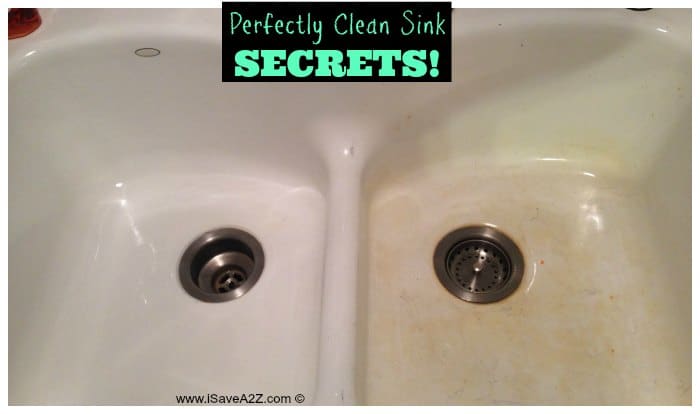


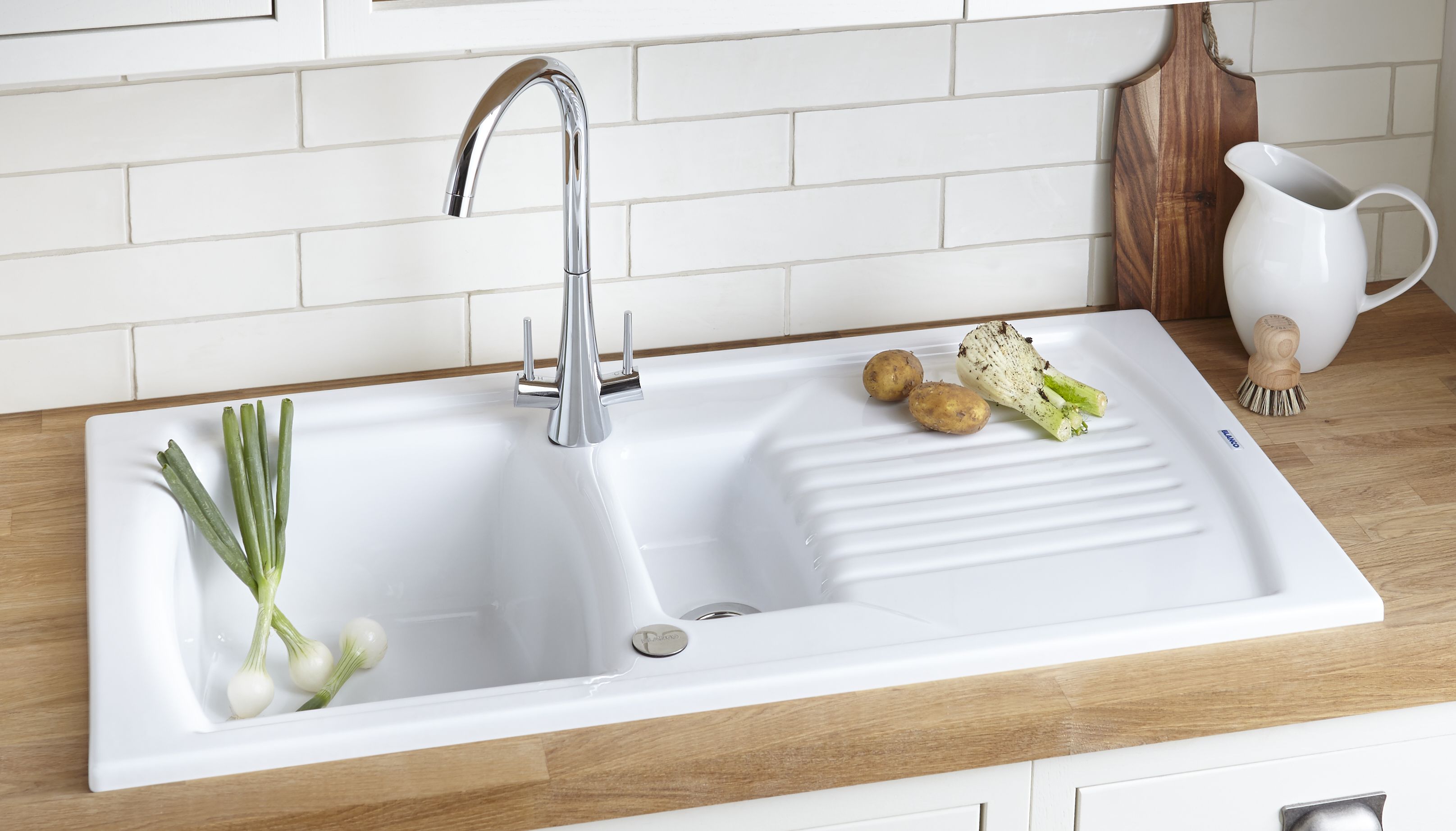

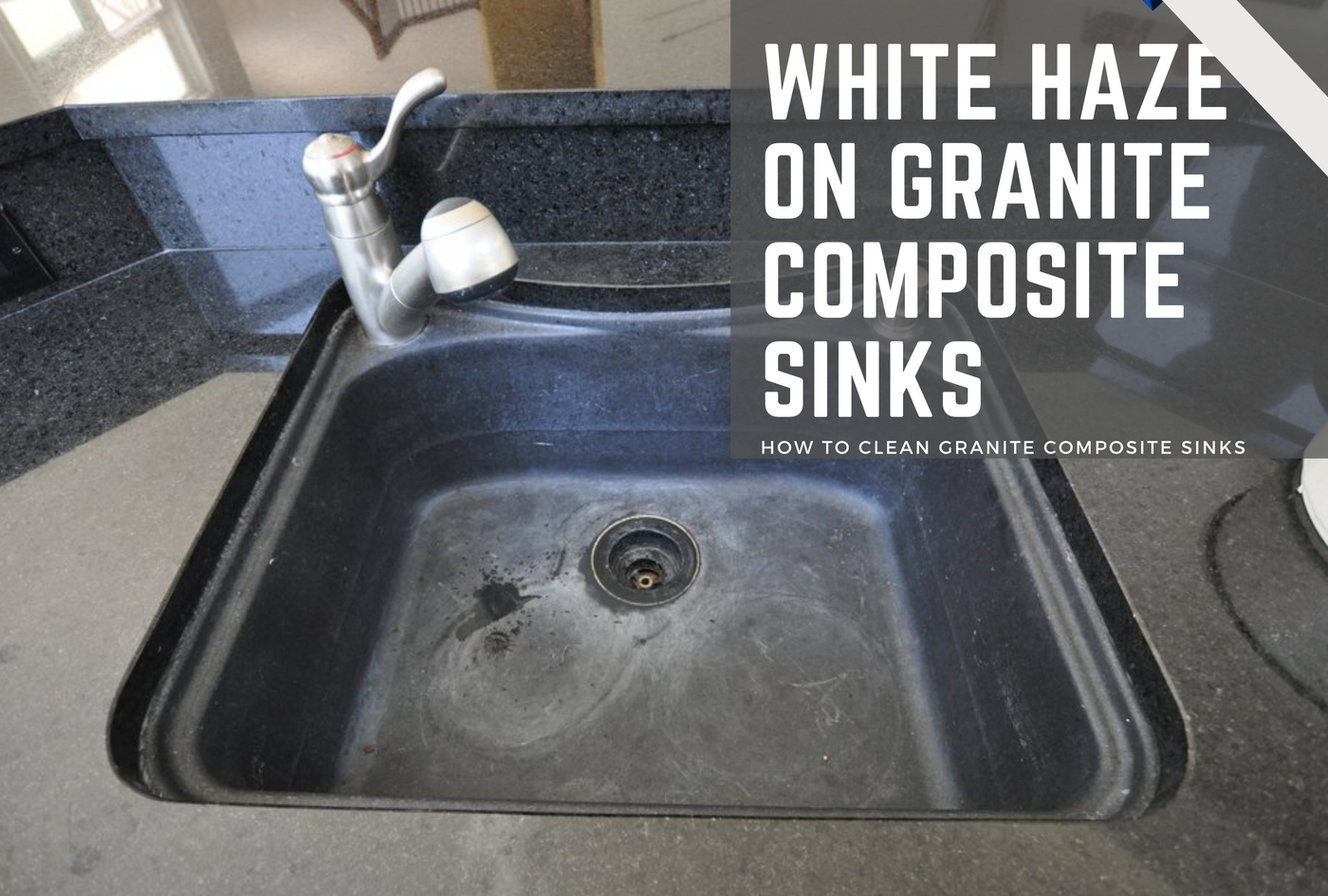
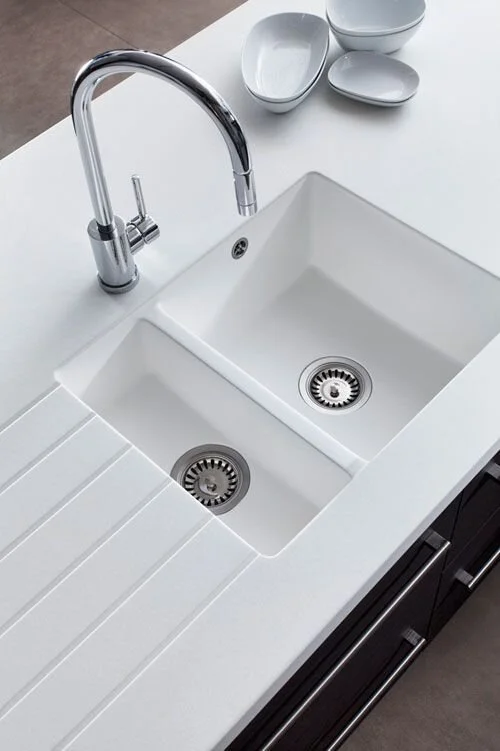



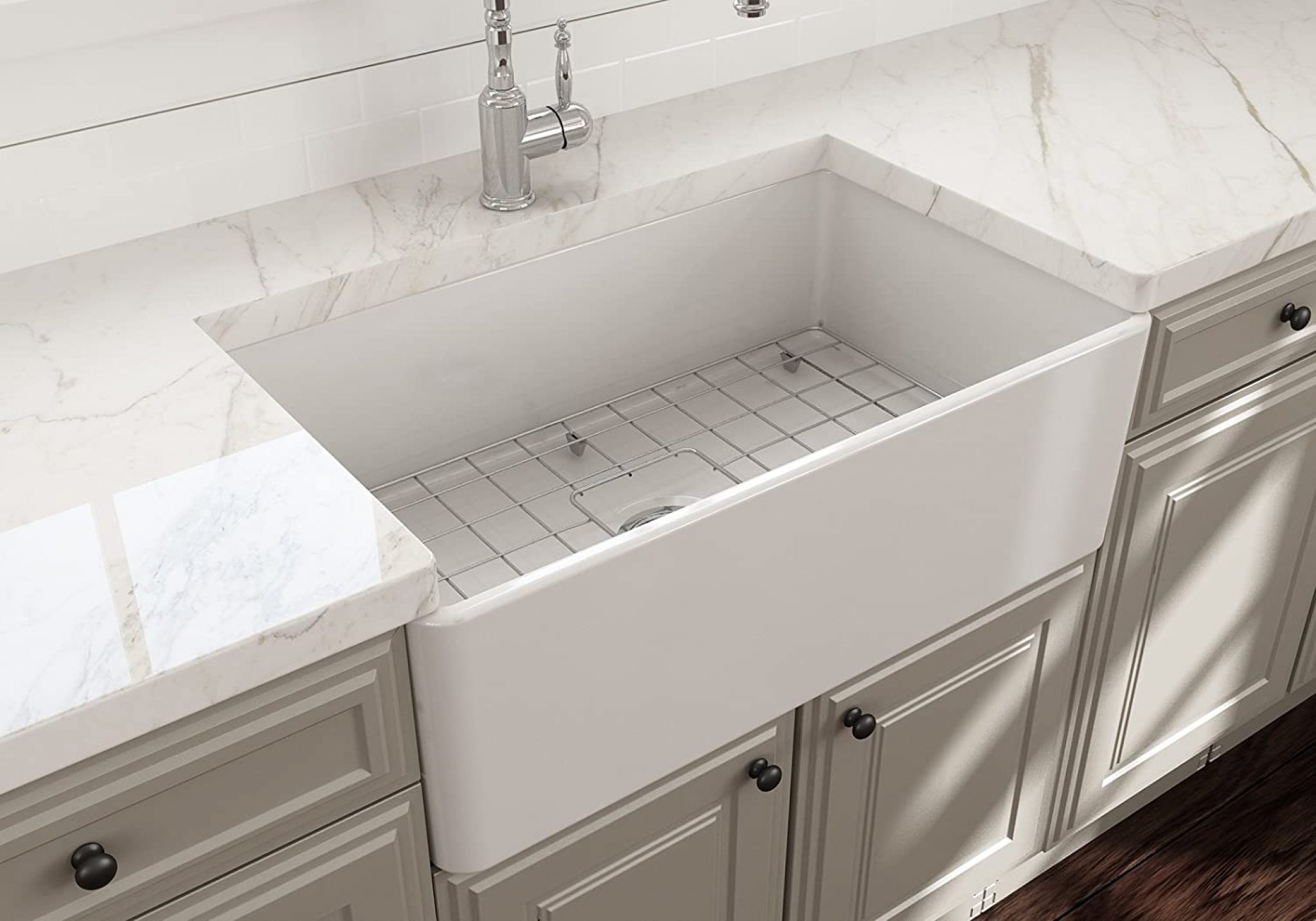


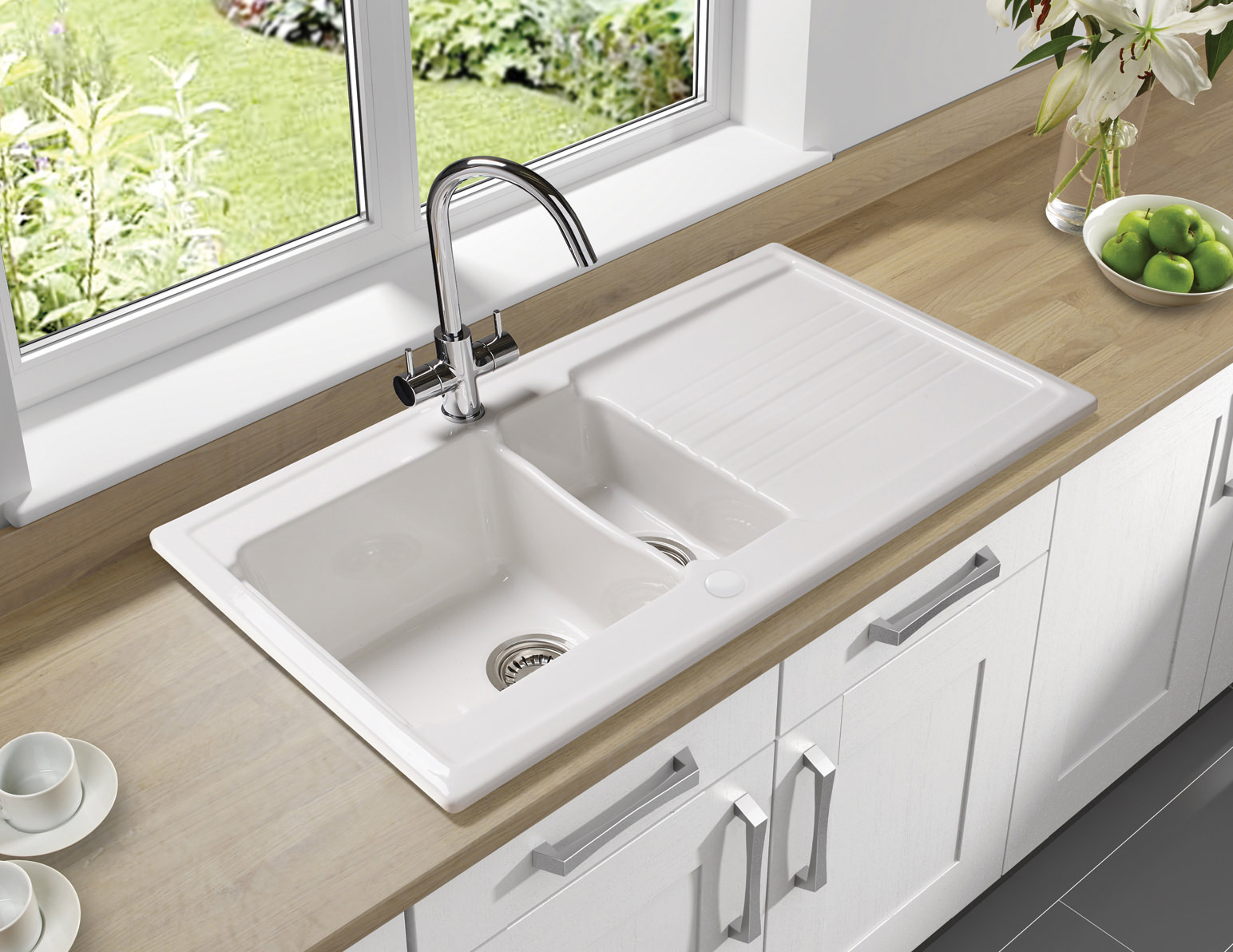
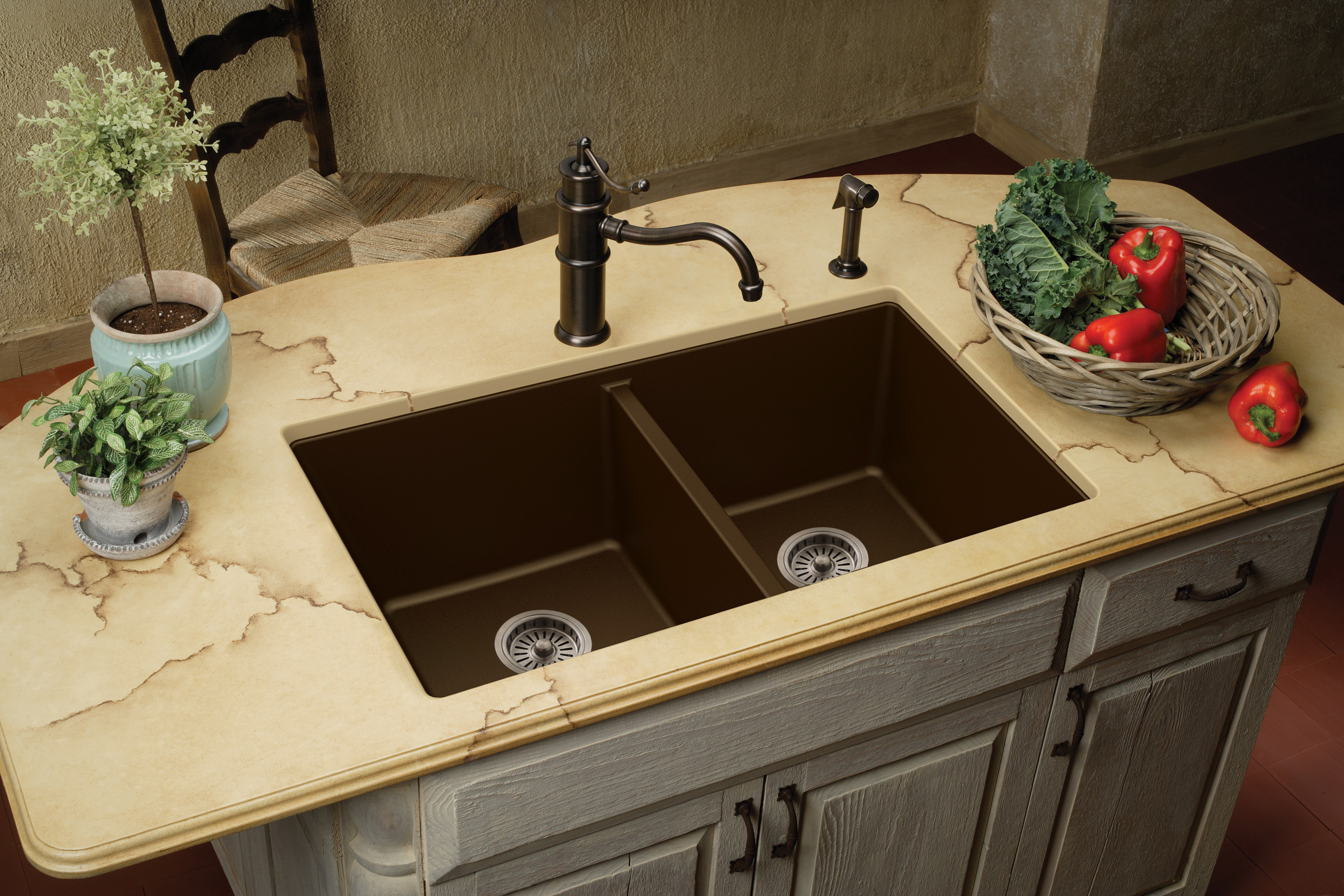




:max_bytes(150000):strip_icc()/how-to-clean-a-kitchen-sink-and-drain-02-5660035-7a630bc36f2c401bbe412bbe85937ff3.jpg)


